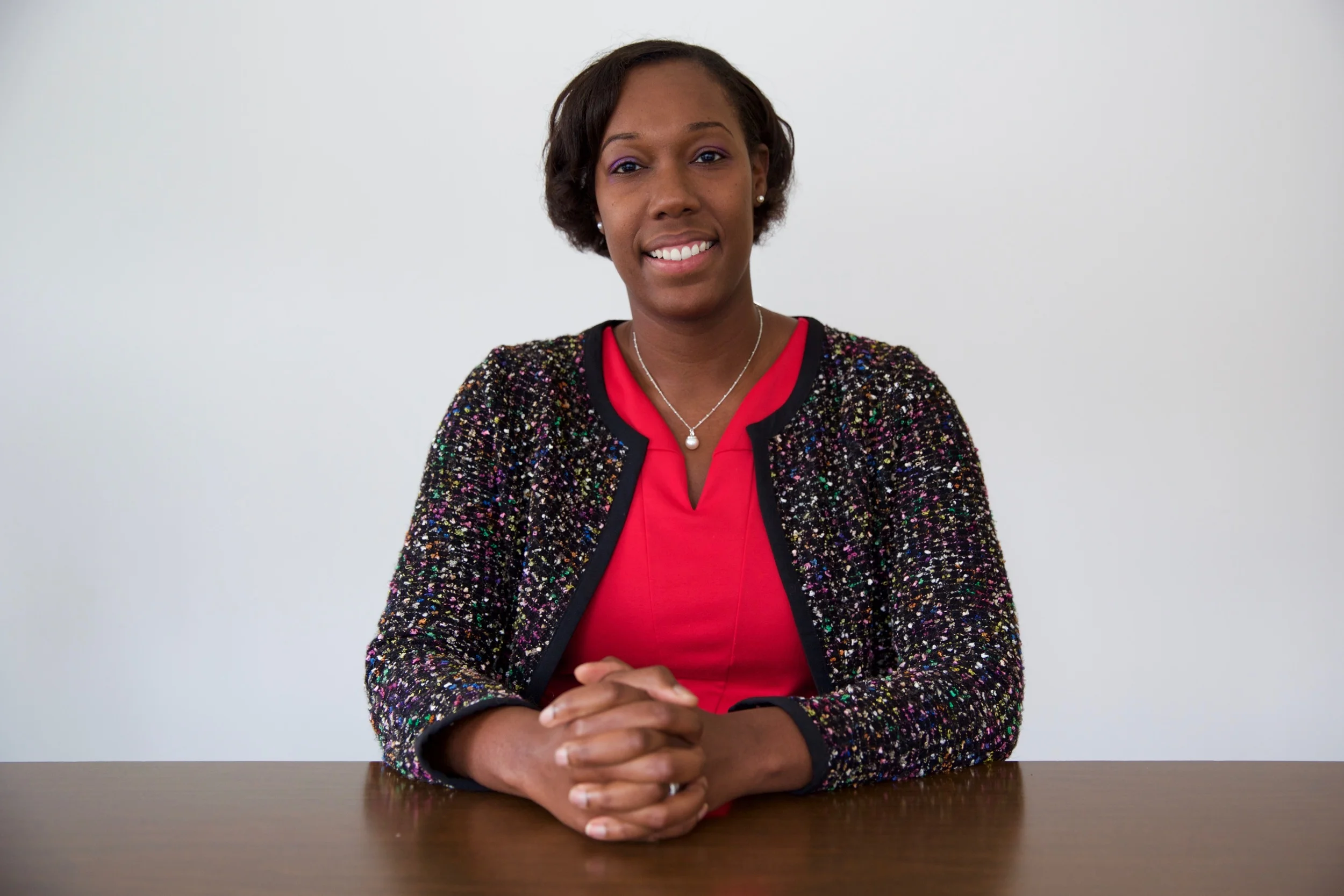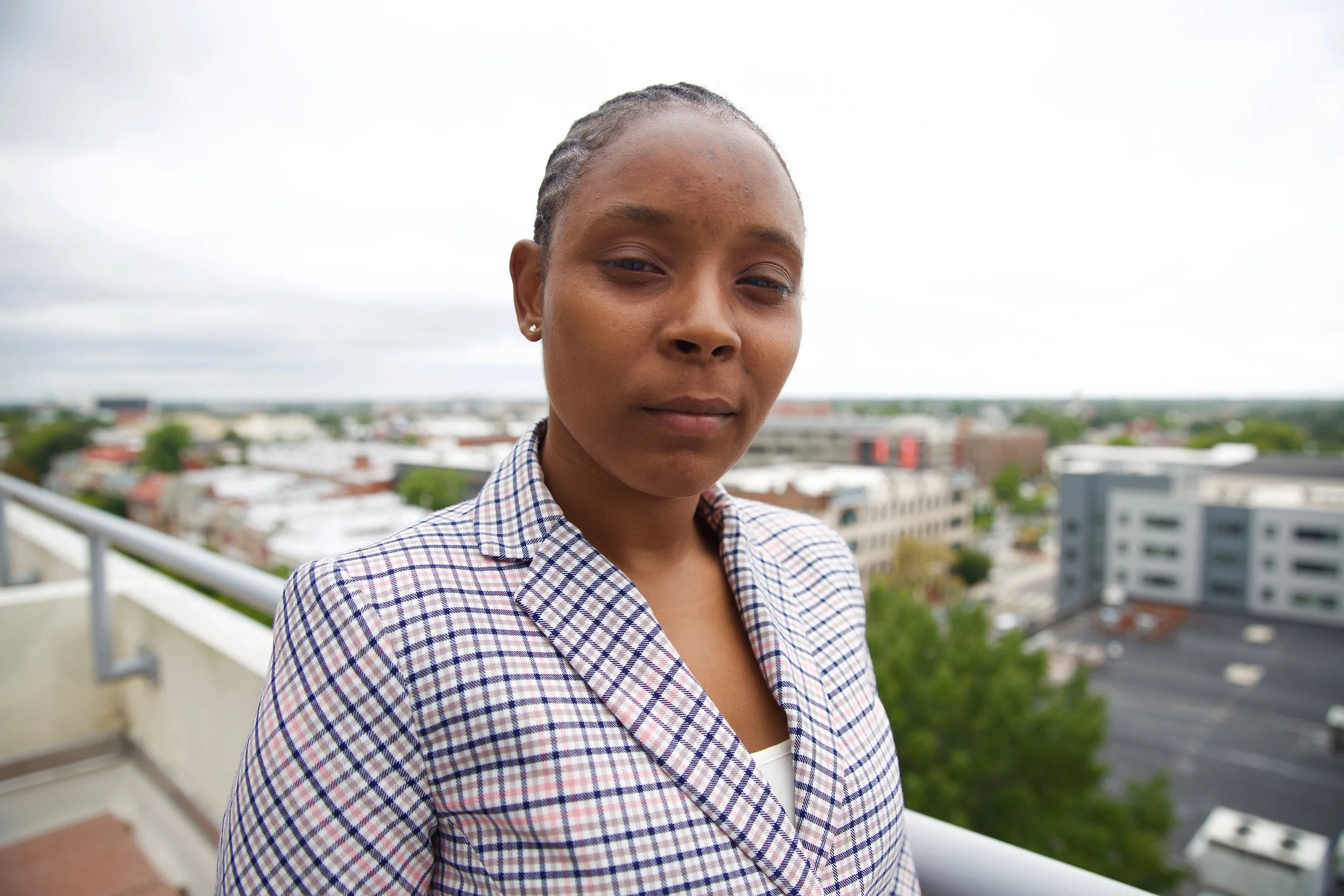Richmond Justice
STORIES + PORTRAITS
Marvin | October 7, 2016
Marvin Brown was born and raised in Richmond. He first had contact with the justice system at age 14. During the seven years that followed, he experienced homelessness, drug addiction, and incarceration. Today, Marvin works at Mama J's and serves as a mentor to young people. He is also a member of the Youth for RISE Advocacy Network, part of the RISE for Youth campaign, which pushes for community-based alternatives to youth incarceration.
My childhood was devastating. It was devastating. I stayed with my grandmother for most of my school years, often sleeping on her couch. My mom was always a provider, working two jobs. But she was in an abusive relationship, and her partner abused me, too. And my father has been in a federal penitentiary for as long as I can remember.
“I saw things no child should see, and they broke my spirit.”
Early on, I started acting out, looking for attention, trying to find an outlet to express the anger I felt on the inside. If my mom wasn’t at work, she was at home getting abused. There wasn’t time for me to sit down and connect with her. And besides, what adult is going to listen to a five- or six-year-old child saying, “Mom, you don’t have to go through this?”
The neighborhood didn’t make it easier. I grew up in Highland Park, where there was trouble peeking around every corner. I saw my best friends die in front of me. Brains and blood on my face. At 14 years old. I saw things no child should see, and they broke my spirit.
I skipped school, cut class, used drugs, drank alcohol. I was homeless for a year. I had a son and I wasn’t providing for him. I took showers in group homes and homeless shelters. I always wanted to smoke marijuana. I did pills now and then. My judgment was always impaired. I remember times when I washed up in Food Lion, McDonald’s, White Oaks Mall—you name it—and slept on bug-infested couches in drug houses. I never had someone telling me, “Marvin, you have the potential to become someone beautiful: You can make it. Don’t sell yourself short.” I always had someone telling me, “You can’t do it. You won’t make it. The odds are stacked against you.”
Starting when I was 14 and until around the time I turned 21, I was in jail or on probation for assault, drug possession, petty theft, or burglary. I would get out and only a few months later get locked up again. At every stage, I was treated as an adult—not like the child that I was. The system didn't recognize that my brain hadn't fully developed. I didn't know who I was.
On January 9, 2014, I was convicted for the last time. I did 16 months; I came home May 7, 2015. I endured so many hardships while being locked up. My hair was falling out. My best friends passed away. Family members grew distant. I couldn’t see my son. I wanted to give up. I thought about committing suicide. But I stopped—and I gave God the praise. I started reading and learning about the world, and I realized: I'm not going to get anywhere if I continue living this lifestyle.
“I saw my people sick, I saw my people struggling.”
In jail, I surrounded myself with people who were older than me, people who were wiser about the world, and I took the best of what they advised me and used it to mold myself. We were all in the same predicament. But some of the older guys told me, “You still have that fire for life: I can see it, I can feel it. You’re a young man, you’re a strong man—you can’t spend the rest of your life in here. You need to go back into the world and be a light for others. You can’t stay in the darkness.”
I’m committed to saving my people—and my people are everyone. Inside jail, I saw my people sick, I saw my people struggling. I saw corrections officers treat my people like animals. I saw people who never had health problems die in jail. Those guys who counseled me inside, they gave me more encouragement than many of my own family members. That experience with them made me into the man I am today.
Today, I have my own apartment. I take care of my son. I work faithfully. I’m expecting a new child—I’m very happy about that. I’m saving money to provide for my children and start a nonprofit for less fortunate children. I owe it not only to me and my family, but also to everyone inside and everyone out here struggling, to be a better man. I just want to help others.
“When you see bad influences and violence every day, it takes a peculiar person to grow up in that kind of environment and not become part of the problem.”
Through the RISE for Youth campaign, I help advocate for community-based alternatives to incarceration—because we need to set our kids up for success. We need to teach parents how to be parents. We need to teach kids how to act in public, how to be attentive in class, how to manage money—things that are not offered through the justice system. And we need to provide things for our kids that they do not find at home—clean clothes, school supplies, safe places to go after school to do homework and play games. We need to mentor our kids. When you see bad influences and violence every day, it takes a peculiar person to grow up in that kind of environment and not become part of the problem.
Right now, among minors released after incarceration in Virginia, the re-conviction rate within one year is 73.4%. With that statistic alone you could conclude that prisons don’t work. But for too many kids, starting when they're very young, the system is building a bed in prison for them.
If the justice system treated our kids like kids, then there would be no youth prisons. The money that builds and funds and operates them would be put into community-based alternatives to incarceration. We should look at each child’s history—their physical history, their psychological history—and look at the parents and their histories. And then we should build them up. I found people who built me up. I built myself up. Because I’m not trying to be one more person thrown away.
— interviewed October 5, 2016








